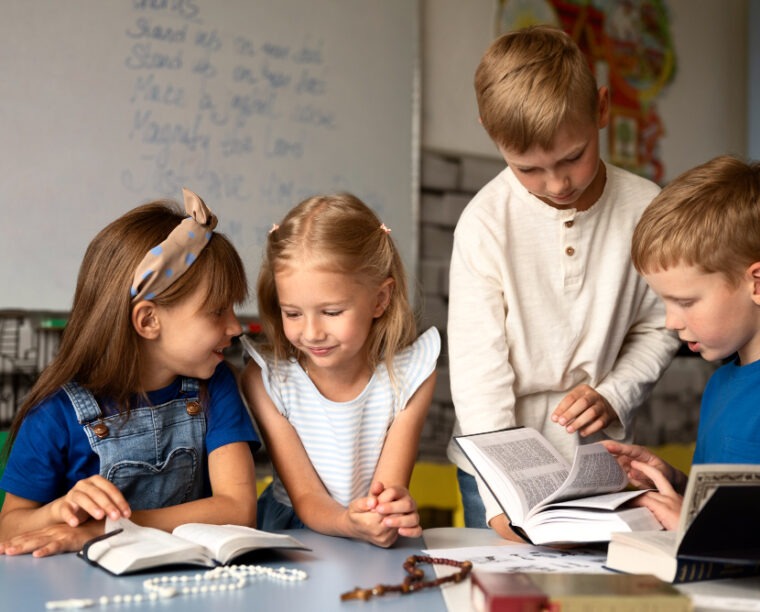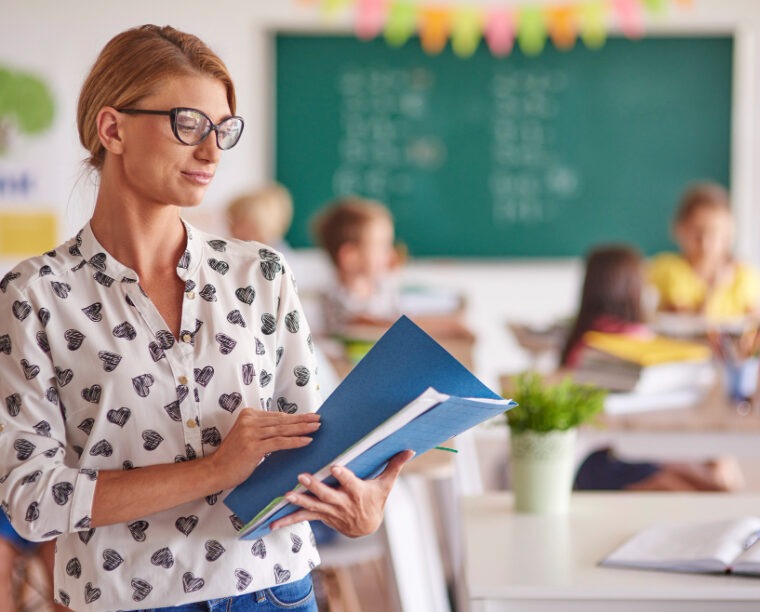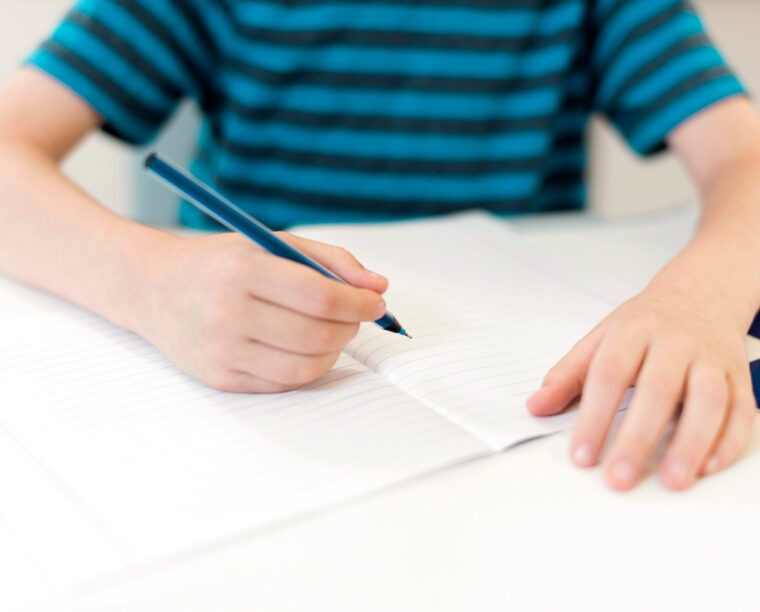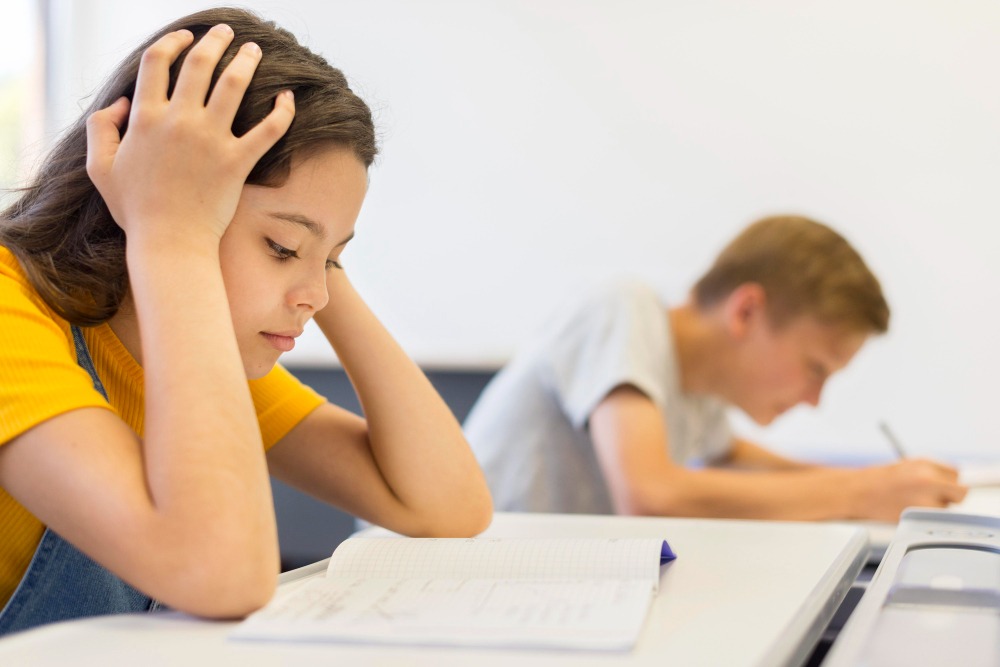
Standardised tests for 8th grade are one way for students to objectively assess their knowledge, understand their strengths and weaknesses, and see how they compare beyond their own class or school. Although these tests often cause considerable anxiety for both students and their parents, at l Saulės Gojus School they are seen as a challenge to test oneself, a kind of self-confidence assessment, and a step towards maturity.
The main purpose of the tests is self-knowledge
“Why do we need this?” is a question often asked by eighth graders as the tests approach. And quite rightly so, because they more or less know what they are capable of. These tests allow students to get a more detailed picture: am I really strong in all areas? Do I understand things as well as my peers across the country? This self-assessment encourages students to take responsibility for their learning outcomes and build self-confidence.
It is important to understand that a test is not a definitive assessment of a student’s knowledge: it shows the child’s level of knowledge at a specific moment in time, not their value or potential. Even a student who is an excellent learner may fail the test due to stress, fatigue, or other reasons, which is why test results are not overemphasised at Saulės Gojus.
What topics are covered in standardised tests for 8th grade?
To help children and parents understand what to expect, here is a brief overview of the content of standardised tests.
Standardised maths tests for 8th grade
According to official guidelines, these tests assess students’ ability to perform operations with numbers and expressions, apply mathematical knowledge in practical situations, analyse data, and think logically. The areas covered include:
- arithmetic and algebraic expressions
- proportions and percentages
- equations and inequalities
- geometry and measurements
- data analysis, etc.
These tests are often presented in real-life contexts, encouraging students to understand and apply their knowledge in practice rather than simply memorising content.
Standardised Lithuanian language tests for 8th grade
These tests assess:
- reading and text comprehension
- information analysis and interpretation
- recognition of linguistic correctness
- written expression skills, etc.
They cover a variety of text types (narrative, informational, fiction, and non-fiction) and encourage students to express their opinions, supporting them with reasoned arguments. The tests evaluate not only knowledge of language rules but also critical thinking skills.
An approach that changes everything
Tests can still cause anxiety for many students. At Saulės Gojus, teachers consciously cultivate the understanding that test results should neither be demonised nor overestimated. They help students prepare psychologically by emphasising that a test is just one of life’s situations and that learning to handle it is valuable: life will present many challenges, and tests are one way to practise coping with them.
Tests also teach important life skills such as planning, concentration, and analysing results. Most importantly, by taking responsibility for what we learn and how we present it, we develop the ability to take responsibility for our lives in general. At Saulės Gojus, teachers firmly believe that a person’s value is not determined by a number next to their name.
How does Saulės Gojus prepare children for tests?
Preparing for tests at Saulės Gojus is not just about revising knowledge. Teachers also pay close attention to students’ emotional well-being: they guide them through breathing exercises and set aside time for calm conversations or reflection in a circle. This creates an environment where tests are not a “bogeyman,” but just another part of everyday life. Students learn to prepare, calm themselves, and focus – skills that are useful not only at school but also in life.
Are the results important?
Although Saulės Gojus students consistently exceed the average results of standardised tests in Lithuania—about 10% higher in mathematics and roughly 5% higher in Lithuanian language tests—this information is used for reflection rather than promotion. The school does not encourage parents to choose an educational institution based solely on statistics; its atmosphere, values, and community matter far more. The mission of Saulės Gojus is to nurture self-confident, curious, and emotionally mature individuals who embrace challenges and learn from every experience, regardless of the outcome.
The most important message
Standardised tests are just one way to assess progress. They should not be a source of fear or pride. A child’s true value lies in their effort, curiosity, and ability to learn and grow. From kindergarten onwards, Saulės Gojus helps children understand this fundamental principle.
 School Saulės Gojus
School Saulės Gojus 